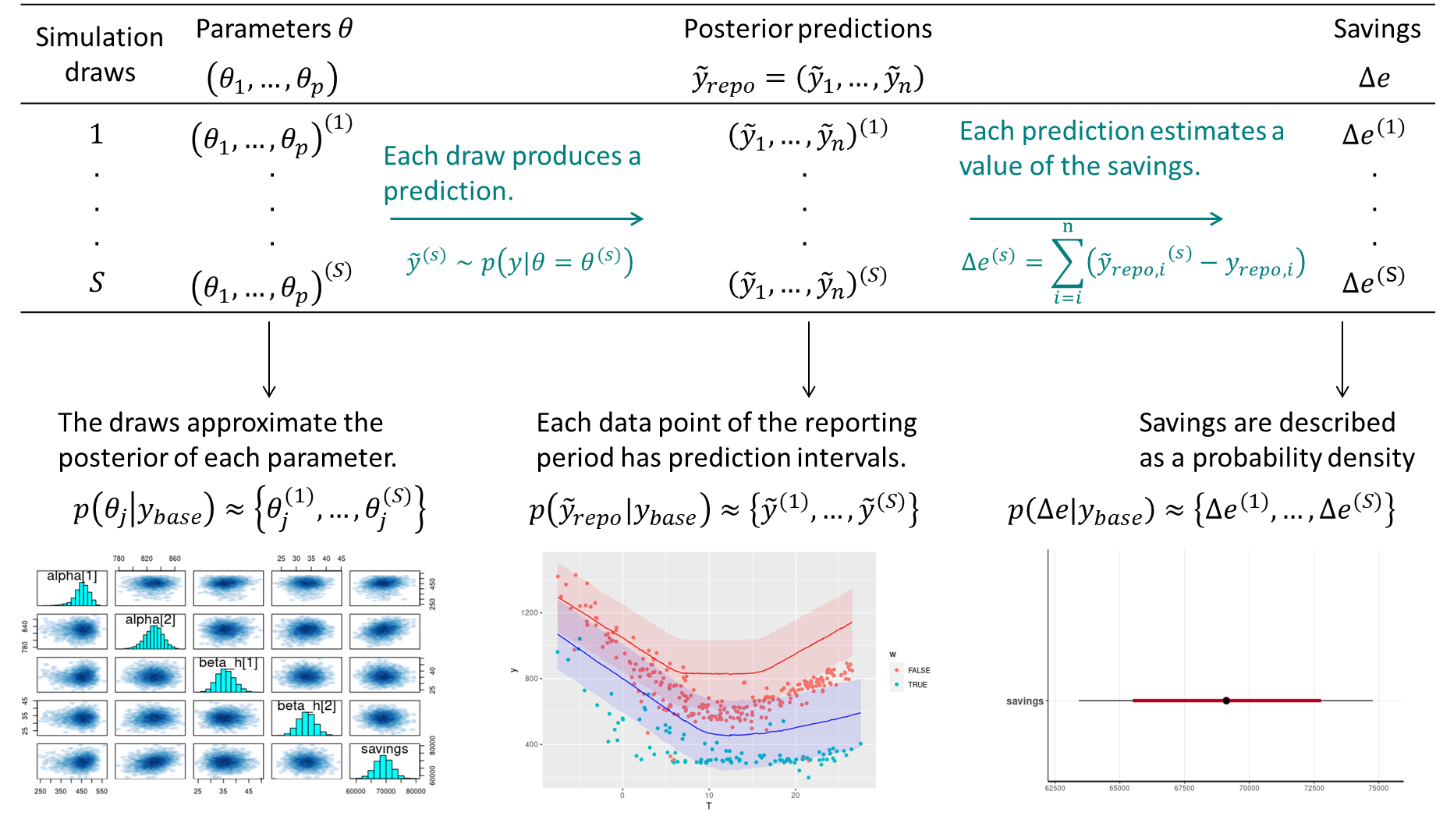Research
Overview
The main topic of my research is statistical modelling and inference applied to building energy performance assessment.
In 2022, I have completed an HDR research report which summarized all my work up to date (for non-French readers: the HDR, habilitation à diriger des recherches, is a dissertation written by researchers in order to demonstrate their ability to coordinate research projects, and is a necessary condition for career advancement).
The HDR report is available here. You can also see the list of my publications on my ORCID profile or on Google Scholar.
Topics of research
Throughout several research projects, I have applied probabilistic modelling and statistical inference to three main themes.

Characterizing the heat dynamics of buildings
In the current energy and environmental context, the renovation of the existing housing stock appears as one of the major ways to reduce energy consumption. However, ambitious goals can only be achieved if project owners are guaranteed to obtain the energy performance expected in the design phase: such a guarantee would be a major incentive for investment in refurbishment. The building sector therefore needs tools for a reliable energy performance assessment of buildings. They include methods for measuring the intrinsic properties of the envelope.
The criteria of this energy performance assessment, and key scientific challenges, are:
- The reliability of estimated performance indicators, so that they can contribute to energy performance contracting verification.
- The ability to disaggregate the building energy use and offer a detailed diagnosis, so that refurbishment decisions can be prioritized.
- The characterisation of intrinsic properties of the building and its equipments, independently from the influence of occupants on the energy performance.

My work in this field started with the BAYREB project which has its own website. All results of the project have been summarised in a single report available here.
Energy performance monitoring
Energy performance monitoring is meant here as the ensemble of methods for the assessment of the energy performance of a building and its systems.
- Commissionning, defined by the ASHRAE as a quality-focused process for enhancing the delivery of a project. The process focuses upon verifying and documenting that the facility and all of its systems and assemblies are planned, designed, installed, tested, operated, and maintained to meet the owner’s project requirements.
- Fault detection and diagnosis (FDD) is the process of using building operational data to detect the occurence of faults and identify their root causes.
- Measurement and verification (M&V) is the process of assessing savings caused by an energy conservation measure (ECM), by comparing and adjusting measured consumption or demand before and after implementation of a program.

Air flow
The demand for air conditioning of buildings is bound to increase in the next decades, due to the combined effects of climate change and increasing comfort standards in all countries. The need to reduce the energy demand for cooling has led practitioners to reinstate and adapt traditional natural cooling practices, some of which have existed for centuries: ventilative cooling, cool roofs, green roofs, evaporative cooling, etc.
The main barrier to a successful generalisation of natural cooling is the difficulty to ensure its performance. Accurate predictions of air flow rates are a necessary condition for a reliable design, but are also very uncertain. Moreover, once a natural cooling solution has been implemented, there is no way of assessing its effectiveness on thermal comfort.
In order to address these challenges, we propose the development of data-driven modelling of coupled heat and air transfer in buildings, especially in warm weather conditions. The strategy of the project lays on using statistical learning methods for the characterisation and prediction of heat and air flow.
